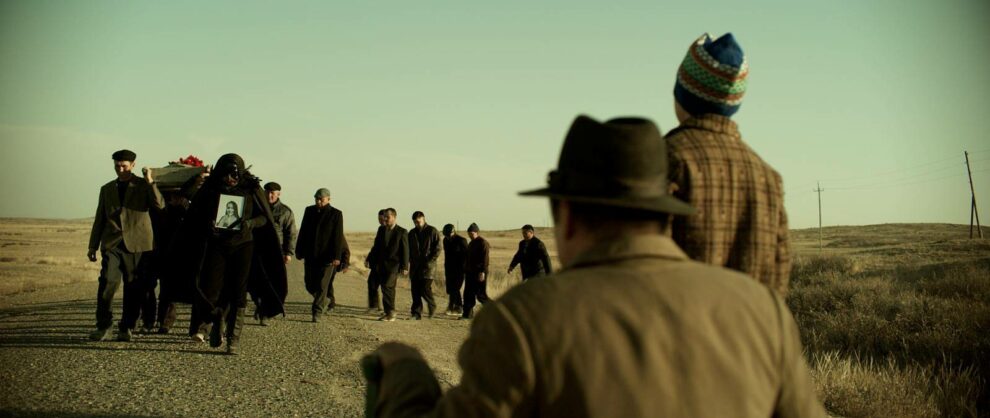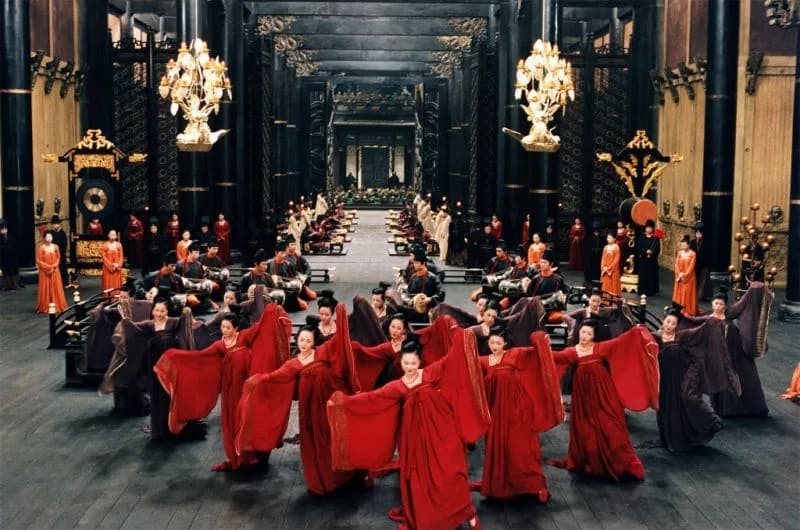The Soviet Union conducted 456 nuclear tests at Semipalatinsk from 1949 until 1989 with little regard for their effect on the local people or environment. The full impact of radiation exposure was hidden for many years by Soviet authorities and has only come to light since the test site closed in 1991. According to estimates from Kazakh experts, 1.5 million people were exposed to fallout over the years. Kenzhebek Shaikakov talked to a number of inhabitants regarding their experiences and came up with the film with life in the area during the 80s and the 90s.
Scream is screening at Vesoul International Film Festival of Asian Cinema

Melis, who was born without legs, lives with his young son Zhalgas in a small rural village in Kazakhstan, near the aforementioned test site. The villagers, however, live peaceful lives, under the instructions of the Soviet Union. Zhalgas is worried about his father and tries to find a woman for him to marry, although a drunken friend of Melis brings him a rather beautiful woman from the next village, Gulnar, in order for him to sleep with. The whole endeavor does not end well for anyone, although Melis and Gulnar seem to like each other. At some point, Melis's body becomes associated with the weapons tests that signify nuclear experiments. This revelation causes an uproar in the village.
Kenzhebek Shaikakov implements an approach that is quite close to the documentary in order to highlight a life that could very easily be described as utopian, both for the particular setting and for the no-way-out existence of the locals. At the same time, and in order to tone down the bleakness, he has included much symbolism in the form of particular characters. The ‘village lunatic” who just roams around screaming definitely symbolizes the cry for help from the locals, while the presence of the all-in-red and fancy Dulgar is quite pleasant to the eye, although the symbolism here is much more difficult to realize. The effort of Zhalgas and his best friend to find a wife for Melis adds a note of comedy, although drama is definitely the element that permeates the narrative.
At the same time, though, as time passes and the pace remains quite slow and tension is nowhere to be found, following the narrative becomes somewhat tiring, particularly because the style of filmmaking seems outdated, especially in the way the story unfolds. This essentially makes the film seem longer than its 98 minutes of duration and emerges as its biggest fault.
On the other hand, Epkin Zhenis's cinematography captures the dystopian setting in impressive fashion, particularly in the exterior shots, while the visual approach overall, including the ‘women in red' and the red scarfs the boys wear works quite well. Furthermore, the way the Soviet Union exploited the people of the area without letting them know what is actually happening right next to them is communicated eloquently, with the accusation being rather strong. The irony of the fact that the kids are happy when a test is happening because schools are closed is among the most memorable aspects of the movie, in a kind of bitter irony that actually permeates the narrative.
Lastly, Orynbek Shaimaganbetov as Melis, an actual crippled actor, is impressive throughout, particularly in the way he presents his insistence not to be a treated like a handicapped person, which is essentially mirrored in his son too.
“Scream” could have been a bit better in terms of the approach to the narrative and the structure of the script, but the sum of the rest of its elements definitely compensate, resulting in a movie that is quite interesting to watch, also for this rather unknown part of history.














